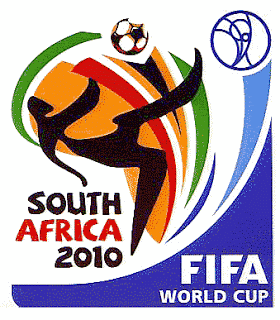
The 2010 FIFA World Cup has come and gone, wowing audiences worldwide with the sport's best and most promising teams and athletes competing for the number 1 spot. And for the very first time, the Cup was hosted on African soil. Congratulations to Spain, the winners!


From June 11th - July 11th, money and people flowed into South Africa, a proud country with a history no more complex and convoluted than any other, but did the African citizens benefit from such a seminal responsibility? In other words, was the decision to host the 2010 World Cup one that worked in the country's favor, or against it?
Economists believe that people (and nations) make decisions when they benefit more than they have to pay out; that is, when the benefits outweigh the costs. When we do this consciously with some desired outcome in mind - such as earning a lot of local revenue as a result of hosting the 2010 World Cup - economists say that people are "rational." We analyze a situation and weigh the pros and cons and act based on our expectations on how things will pan out. In this situation, it's safe to assume that the South African government and industry leaders (at the very least) thought that hosting the games would be a good idea for the country since they opted to host.
First, some historical context: South African was hostage to the institution of Apartheid from the 1930s when the term first appeared (an Afrikaans' word meaning "apartness"), through and beyond the 1940s when it was systematized into law. Think Jim Crow: nonwhite residents and business owners were restricted to certain areas, land ownership to nonwhites was duly restrictive, the lawful segregation of public facilities, prohibited social contact between the races, curbed nonwhite participation in government and economic policy, ad nauseum. Mounting international anti-apartheid pressure led to the state dismantling the system in the early 1990s. In it's wake was a worsening problem of income inequality between white South Africans and Black South Africans, and also between rich Black citizens and poor Black citizens.
According to the New York Times on July 12th, FIFA raken in approximately $3.3 billion in revenues from this year's World Cup, primarily from television rights, marketing and partnerships with various sponsors such as Coca-Cola.
South Africa's government spent just over $4 billion to host, most of which went to construction and improving infrastructure requirements. An estimated 130,000 temporary jobs were created by the soccer frenzy, in a country of 48 million (with 25 percent unemployment). President Joseph Zuma informed the media at a news conference "We are sure that the investment we have made will contribute to increased tourism, trade and investment. This will ultimately create new opportunities and bring in the revenue for us to address social challenges."
Well S.A. paid $4 billion and FIFA took in $3 billion. Well what else did South Africans get??
1. FIFA helped to establish the 1GOAL Campaign an initiative that serves the over 72 million children worldwide who are denied the chance to go to school. It was decided that the 2010 World Cup was the best place to launch the campaign, because the eyes of the world were watching. No data on the quantity or quality of education among South African children as a result of the initiative.
2. Ticket sales revenue would have significantly benefited the local economy if more tickets had been sold in advance. Reports state that initially, tickets were only sold online, a slight to Black South African fans, many of which do not hold bank accounts or have access to the Internet. Later, tickets were sold in-person exclusively to South Africans, but not before lots of revenues were missed. FIFA also had it's hand in these money flows as well, however.
Cynics (like the Delasol Group) contend that a not for profit organization like FIFA surely seems to be laughing all the way to the bank at the expense of the host country. Financially, the World Cup was a great deal for FIFA, but the grass wasn't as green on the South African side.
Thoughts? Always welcomed.
No comments:
Post a Comment